- Home
- Parnell Hall
04-Strangler Page 2
04-Strangler Read online
Page 2
It was.
“You a cop?” one of them ventured, and they both started laughing.
“No, ma’am,” I said. “I’m a private detective.”
I must say it was gratifying. It was as if I had told them I was James fucking Bond. On the other hand, I had a feeling that inside of ten minutes at least fifty other tenants were going to know there was a private detective in the building, but there was nothing I could do about that.
I got off at twelve and left the girls on their way down. They seemed reluctant to see me go.
The hallway on the twelfth floor was empty, for which I am always grateful. I set out to look for 12C. That’s never as easy as it sounds. The numbers on the doors in the projects always seem to come from a box marked “flimsy.” I strolled the long, narrow, shaft-like corridor, looking for a clue.
I got one. On one of the doors was penciled 12J. All right, now all I gotta do is figure what direction they’re running and count.
A little bit further I found 12H. All right. Got it nailed. That’s G. That’s F. That’s a stairwell. That’s E. That’s an alcove designed specifically for murderers and muggers to hide in. That’s D. That’s C. Jackpot.
The door once had a knocker, but it didn’t now. I pounded on it with my fist. I waited. Nothing. No answer. I put my ear to the door. No sound of movement from within. I knocked again. Nothing.
I felt like strangling Wendy/Janet. I felt like strangling Sam Gravston. I felt like strangling Winston Bishop, if I could ever find him.
The thing was, it was a signup. If it had been a picture assignment, I could have just shot it, and if the address had been wrong, tough shit, it’s not my fault and I’d get paid for it.
But a signup’s different. You can’t do it without the client. If I couldn’t find Winston fucking Bishop, I wasn’t going to get paid. That, on top of not getting paid for the three photo assignments I hadn’t had time to shoot in the Bronx, was gonna make this a hell of a day. And, as usual, I was way behind on Tommie’s tuition, Con Ed, Ma Bell and the rent.
Shit.
I jiggled the door handle and it opened. I pushed the door open. In front of me was a hallway and a turn. I called out, “Winston Bishop?” at the top of my lungs. I figured even if he was deaf he should have heard me. But then some of these large-family project apartments are really cavernous, so I figured I ought to make sure.
I went down the hall and around the corner. I immediately saw that this was not a large-family apartment. It was a small, two room, single-occupancy affair. I was in a dining room, living room, kitchen combination. In front of me was the door to the bedroom.
Winston Bishop was in the bedroom. I knew it was Winston Bishop the moment I saw him. I can always recognize my clients. They’re the ones with the casts on. Winston Bishop had a broken left arm. It must have broken pretty bad, because he had a full-length plaster cast from his shoulder to his wrist.
But that wasn’t his only problem.
It’s hard to take when you wish for something, and your wish is granted right away, and it wasn’t a good wish to begin with.
You see, Winston Bishop had been strangled.
3.
IT WAS NICE.
That is to say, if you can talk about a violent, coldblooded murder being nice, this one was nice.
What was nice about it was the fact that I wasn’t involved.
I’d found dead bodies before, and when I had, I’d always had something to cover up. Something to keep from the police. Something I had to withhold.
This time I wasn’t involved at all. Any information that I had, the police were welcome to it. Aside from the fact that it robbed me of a client, the murder didn’t concern me.
God, was that nice.
That’s not to say I still didn’t have problems. Cops can be very inquisitive, particularly when a murder is involved. The cops I drew were no exception. If I’d been lucky, the homicide cop would have been Sergeant MacAullif. Then I’d have had the advantage that he owed me a favor. More important, he knew me and would have known that I wouldn’t have done something like this. ’Course the sergeant I drew didn’t know me from Adam.
His name was Sergeant Clark, and he was a sour man, to say the least. He was about my age, and of medium height and build, which I gathered he took as a personal failing and felt he had to make up for. I’m sure Sergeant Clark would have been much more secure had he been big and beefy, like MacAullif. But he wasn’t, and he seemed to want to take it out on everyone in general, and me in particular. And he seemed to take the murder of Winston Bishop as a personal affront to his dignity.
“Now let me get this straight,” he said, fixing me with a gaze that told me I was the biggest liar since the dawn of time and that any words out of my mouth could only be viewed with extreme skepticism. “Your office beeped you, you called in, they gave you this address and sent you over here?”
Déjà vu.
I suddenly realized what was happening to me had happened to me before. I’d been interrogated by the cops because I’d walked in on a client of Richard’s and found him dead. Only that time it hadn’t been true. I’d made it up. Not the part about his being dead, of course. The man, Darryl Jackson, had been quite dead. The part I made up was the part about his being Richard’s client. But, had it been true, the situation would have been exactly the same. So the interrogation I was going through was somewhat familiar.
“That’s right,” I said. “When I got no answer, I tried the door, it was open, and I went in and found him dead. That’s all I know, and you can interrogate me till doomsday.”
“What did you do when you found the body?”
“I went in the bathroom and threw up.”
Sergeant Clark regarded me with that superior disdain police officers have for civilians with weak stomachs.
“When was the last time you saw the victim alive?”
“I’ve never seen him alive.”
“You sure of that?”
“I’m positive.”
“I’d like you to take another look at the body.”
“Why? So I’ll throw up again?”
“I don’t need any of your lip, either.”
“Sorry, Sergeant. I know this is routine for you. But it’s a little hard for me to take. I’ve never seen anyone strangled before.”
Sergeant Clark looked at me as if he’d just cracked the case.
“How’d you know he’d been strangled?” he said.
I felt kind of gutsy, knowing I wasn’t involved, and I almost came back with some jive rejoinder like, “Well, I didn’t think someone kissed him.” But I’m not that jive and I’m not that cocky, and I wasn’t really feeling that great, what with having blown my lunch in the toilet before taking the elevator downstairs to call these cops.
“I don’t know,” I said. “That’s just how it looked to me. But I have no experience with these things, and I could be wrong. That I have some experience with.”
Sergeant Clark didn’t quite follow that. “You have experience with what?”
“Being wrong.”
Sergeant Clark gave me a look, then looked over his shoulder at the door to the bedroom. Inside, flashbulbs were going off. A pudgy, white-haired man in a rumpled suit and tie came out the door, carrying a black bag. I’m not the most astute observer in the world, but even I could have pegged him for the medical examiner, which he turned out to be.
“He was strangled all right,” the guy said. “Probably within the last two hours.”
Sergeant Clark looked at the medical examiner as if he’d just farted at the dinner table.
The medical examiner looked at me and then back at Clark, and I thought I saw a trace of a smile before he said, “Sorry. Would you like to talk privately?”
“I’ll talk to you later,” Clark said, brusquely. “Now, if you’re finished in there I’d like to have this guy take another look.”
“Be my guest.”
Sergeant Clark grabbed my shoulder and p
ushed me toward the door. Always the gentleman.
It was crowded in the bedroom. Two plainclothes detectives were dusting all over the place for prints. Two medics were standing by with a stretcher, awaiting permission to move the body. One uniformed officer was standing by the door, looking very much like a traffic cop, which, in a way, he was. He stepped aside to let Sergeant Clark and me in.
I stepped in and got my second look at Winston Bishop. I hadn’t gone back to look at the body after I’d called the cops. I’d gone back up to the apartment to wait for them, but I hadn’t gone back in the bedroom. I had no reason to. Winston Bishop was nothing to me. I wasn’t involved. The police could solve the crime, or not, as they saw fit—I really didn’t care. Now, maybe that’s a callous attitude, unworthy of a private detective, but then, as I said, I’m not really a private detective. I’m just a poor schmuck trying to get along. I have no sense of professional pride. Yeah, I was sorry for poor old Winston Bishop, but his demise was not of my making. And though I did feel a little sorry that I had flippantly wished him dead, I’m still sane enough to know that if wishes were horses, beggars would hang out at the track.
I looked down at the body.
Sergeant Clark was looking at me as if he expected me to throw up again. I was determined to disappoint him.
It took an effort. A person who’s been strangled does not look pretty. I suppose I shouldn’t generalize, seeing as how Winston Bishop was the first person I’d ever seen strangled. Suffice it to say, Winston Bishop did not look pretty. His eyes were bugging out of his head. His face was coal black, and against it, the white, bloodshot eyeballs seemed enormous. His pink tongue also protruded from his face. He looked like one of the Garbage Pail Kids, those incredibly ugly creatures depicted on the bubble gum trading cards my son, Tommie, insists on collecting. He’d have fit right in: Bug-eyed Bishop.
I looked at the body, didn’t vomit, felt proud of myself and turned to Sergeant Clark.
“Well?” I said.
Apparently that was his line.
“Well?” he shot back at me.
“Well, what?” I asked him.
“Have you ever seen this man before?”
“As I told you before, no.”
“Take a good look. And remember, this guy would have looked a lot different before.”
“I realize that.”
“Take your time. Think about it. Remember, a lot of these blacks all look alike, anyway.”
I realized I didn’t like Sergeant Clark very much. I shot a look at one of the detectives, who happened to be black. The guy never even blinked. I figured Sergeant Clark must be a known quantity among the detectives.
“I’ve taken a good look,” I said. “I’ve made all the allowances I can. I’ve never seen this man before in my life.”
“Uh huh,” said Sergeant Clark. If he believed me, you wouldn’t have known it. He turned to the black detective. “Walker. Take this guy downtown, print him and get a signed statement.”
Sergeant Clark was so preemptory, I half expected Walker to roll his eyes and say, “Yas, massah.” He didn’t. He just looked at me and said, “Let’s go.”
Walker turned out to be a nice guy. On the way downtown he talked to me conversationally about my job and life in general and my finding Winston Bishop in particular, so by the time we got there he had a pretty good idea what had happened, and taking my statement was really a snap.
Still, I’m sure being dragged downtown and interrogated and fingerprinted is no one’s idea of a good time. At least, it’s certainly not mine.
And while I couldn’t really get angry at Walker, I must say I was angry as hell at Sergeant Clark. I won’t say I wanted to strangle him—I think I’ve cured myself of using that expression—but I was good and angry.
I was also pretty angry with myself, for not having had the balls or the initiative to get out of this draggy job that had gotten me into this mess. And I was even a little angry with poor Winston Bishop for getting himself strangled on my time.
But I’m sure the person I was angriest with, bar none, had to be the fucking theatrical agent who had managed to get Sam Gravston that damn audition.
4.
NATURALLY, IT WAS the talk of the office.
“I appreciate your fervor,” Richard said, “but if they don’t sign, they don’t sign. You don’t have to strangle them.”
The demise of Winston Bishop had been a sufficiently unusual event to have disrupted normal office routine. Richard Rosenberg was holding forth in his outer office, something he rarely did. Usually he held himself aloof from his staff and received clients only behind closed doors. Today he was perched on the edge of one of Wendy and Janet’s twin reception desks, desks that were largely taken up by the twin twenty-line switchboards Wendy and Janet manned.
Richard was a little guy, but he made up for it by burning up twice the calories of a big guy. His energy level was incredible. It has always been my opinion that Richard was a hyperactive kid who just never grew out of it.
Richard’s audience consisted of the aforementioned Wendy and Janet, Jack and Alan—two young college dropouts Richard had hired as paralegals to do his filing—and Frank Burke, a young investigator on his second day of training.
I call it Richard’s audience, rather than mine, because even though it was my story, and it had happened to me, Richard always seemed to make himself the center of attention wherever he was, and today was no exception.
“I didn’t strangle Winston Bishop,” I said.
“That’s what they all say,” Richard said.
The audience laughed. I guess you would expect the staff to laugh at the boss’s jokes, but anyone would have laughed—Richard was quite a showman, and he had a real theatrical flair.
“I could get it reduced to manslaughter,” Richard said. “In fact, knowing you, I bet I could get you off—not guilty by reason of insanity.”
Richard was on a roll, and I wasn’t about to try to stop him. I had to just sit there and take it.
“You see, Frank,” Richard said to the trainee, “I want you to learn from this. This is an excellent example of how not to do a signup.”
“Hey, give me a break,” I said.
“No, Frank should learn,” Richard said. “Frank, here’s a quiz for you. You get beeped and sent out on a signup. Now which should you do—a) fill out the fact sheet and sign the client to a retainer or b) kill him?”
“That’s a tough one,” Frank said.
Frank was pleased to be having a good time at my expense. He had been out on his first signups that afternoon. And though the trainees are always given the easier signups, and Frank’s had been out in Queens and probably weren’t that bad, I had a feeling they hadn’t gone particularly well. I also had a feeling Frank wasn’t going to last more than a couple more days. So he was getting his licks in now.
“Let me see,” Frank said. “I gotta think about this. Does this mean the guy isn’t a client, then?”
“Dead men sign no retainers,” Richard said. “Which brings up a good point. Stanley, in the future, if you get this urge, remember, have them sign the retainer, then strangle them.”
I suppose one shouldn’t joke over another person’s misfortunes, particularly over another person’s death, but somehow people always do. Even when someone you know dies, eventually people get around to making jokes, and eventually you have to admit it’s kind of funny. When someone you don’t know dies, it’s hilarious.
Jack and Alan, the two file clerks, laughed a lot, but neither had yet ventured a comment, and probably weren’t about to. They were both new enough to be in awe of being in the presence, and new enough to still want to hold on to their jobs. Richard’s file clerks never lasted much longer than his investigators. This was not surprising. For the pittance Richard was willing to pay, he could attract only the bottom of the barrel. Of them, those with any brains at all would soon quit, and those with no brains at all Richard would soon fire. Jack and Alan were to
o new to have sorted themselves out into one of those two categories, though I suspected they would both fall into the latter. Jack looked as if he would have been happier playing football somewhere, if only someone could have cheated for him on the English final. Alan was one of those little guys who looked as if he could have been a nerd if he’d only had a little initiative.
Wendy and Janet weren’t saying anything either. Janet, the new arrival, was actually somewhat attractive, in a cheap, physical way. She was a skinny girl, with long, black hair hanging down to her ass. Her hair fell down her back in the shape of an arrow that always seemed to be pointing, “Look, boys, here it is.” Her not unpleasant-looking face promised no intellectual complications whatsoever. Her voice, of course, was just as unpleasant as Wendy’s, but put a gag in her mouth and you could have yourself a quite acceptable date.
Wendy, of course, was the iron maiden, the longest-standing employee of Rosenberg and Stone, with the exception of me. Unlike Janet, Wendy would not inspire men to carnal thought. At least not sane men. Wendy looked like every young college student’s paranoid fantasy of his first blind date. Dumpy body, ugly face, hair supplied by electro-shock. She was the type of girl you always figured had to be the class genius, just because she had nothing else going for her. Unfortunately, in her case it wasn’t so. When attributes were being handed out, Wendy had been passed over in every category.
Still, she was an old hand at the firm, and the one most likely to dare venturing a comment. Yet she hadn’t, and in a sudden flash of understanding and horror I realized why. She liked her job. She didn’t want to risk jeopardizing it. She was happy in her work, and she wanted to stay.
It was a sickening thought.
At any rate, that left the floor open for Richard, Frank and me. Or rather for Richard and Frank, as I was merely the butt of their humor. In fact, in the whole session, I think the only good line I got in was asking Richard if I was gonna get paid for the signup, and I don’t think Richard really found that particularly funny. The answer, by the way, was no.

 Clicker Training
Clicker Training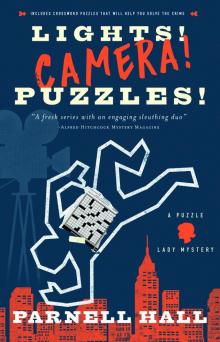 Lights! Camera! Puzzles!
Lights! Camera! Puzzles!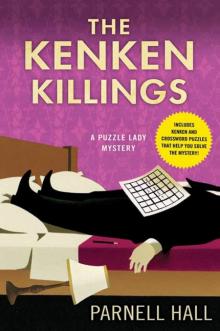 The KenKen Killings
The KenKen Killings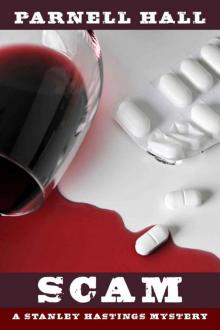 12-Scam
12-Scam The Puzzle Lady vs. the Sudoku Lady
The Puzzle Lady vs. the Sudoku Lady 2 Murder
2 Murder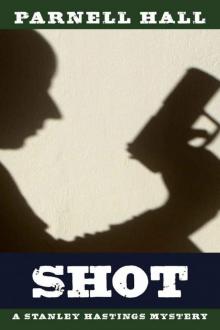 7 Shot
7 Shot You Have the Right to Remain Puzzled
You Have the Right to Remain Puzzled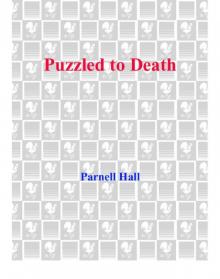 Puzzled to Death
Puzzled to Death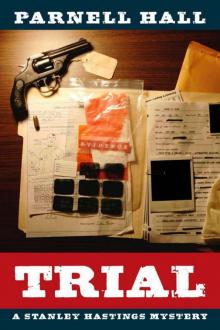 11-Trial
11-Trial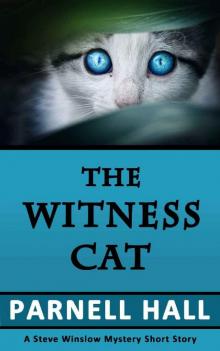 The Witness Cat (Steve Winslow Mystery)
The Witness Cat (Steve Winslow Mystery) With This Puzzle, I Thee Kill
With This Puzzle, I Thee Kill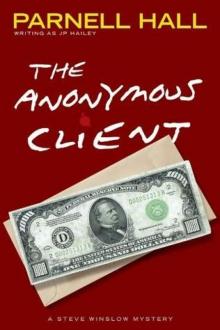 The Anonymous Client sw-2
The Anonymous Client sw-2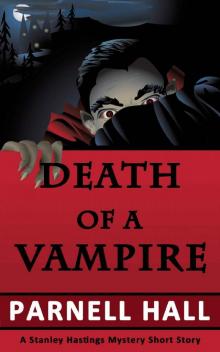 Death of a Vampire (Stanley Hastings Mystery, A Short Story)
Death of a Vampire (Stanley Hastings Mystery, A Short Story)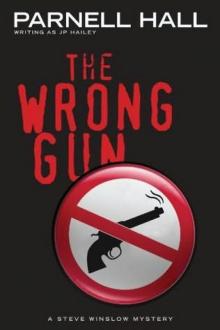 The Wrong Gun sw-5
The Wrong Gun sw-5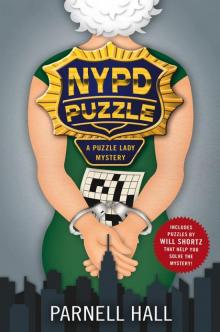 NYPD Puzzle
NYPD Puzzle 6 Juror
6 Juror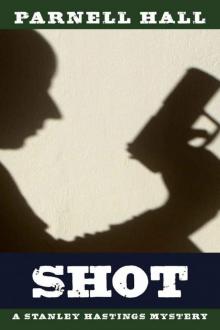 07-Shot
07-Shot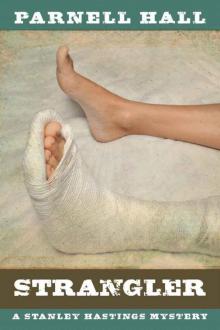 04-Strangler
04-Strangler 02-Murder
02-Murder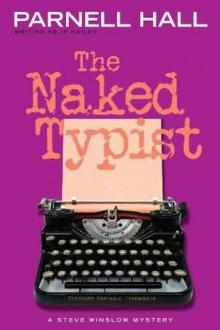 SW04 - The Naked Typist
SW04 - The Naked Typist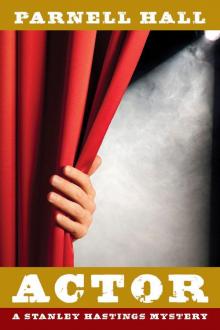 Actor
Actor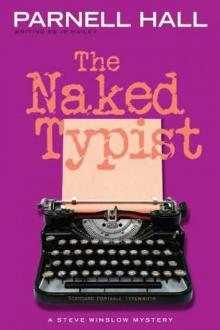 The Naked Typist sw-4
The Naked Typist sw-4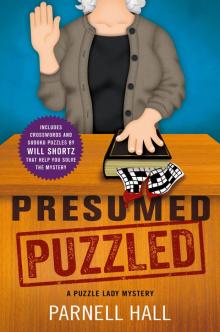 Presumed Puzzled
Presumed Puzzled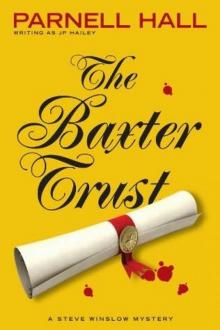 SW01 - The Baxter Trust
SW01 - The Baxter Trust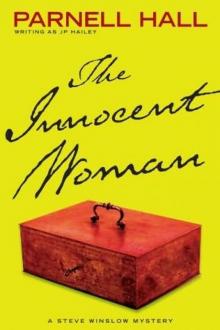 SW06 - The Innocent Woman
SW06 - The Innocent Woman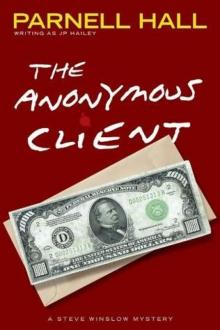 SW02 - The Anonymous Client
SW02 - The Anonymous Client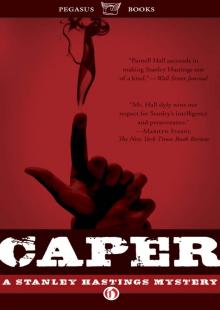 Caper
Caper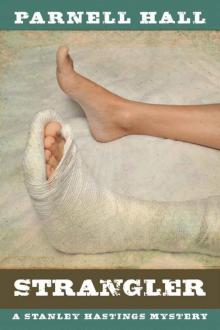 4 Strangler
4 Strangler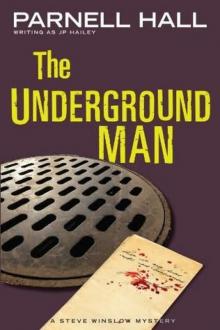 The Underground Man sw-3
The Underground Man sw-3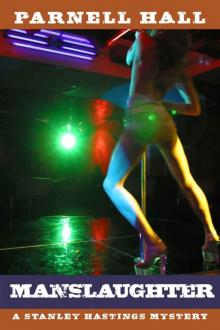 Manslaughter (Stanley Hastings Mystery, #15)
Manslaughter (Stanley Hastings Mystery, #15)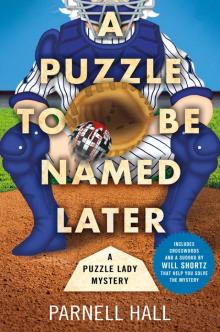 A Puzzle to Be Named Later--A Puzzle Lady Mystery
A Puzzle to Be Named Later--A Puzzle Lady Mystery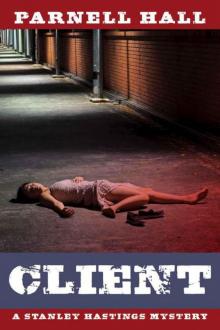 05-Client
05-Client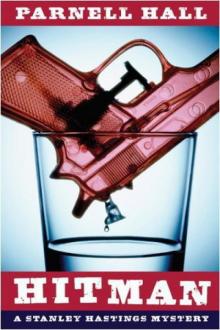 16 Hitman
16 Hitman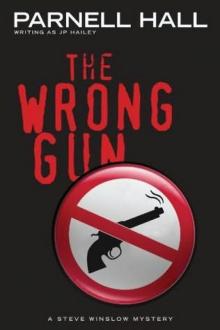 SW05 - The Wrong Gun
SW05 - The Wrong Gun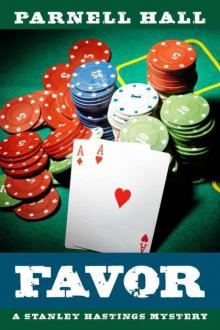 3 Favor
3 Favor Last Puzzle & Testament
Last Puzzle & Testament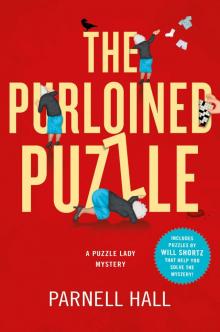 The Purloined Puzzle
The Purloined Puzzle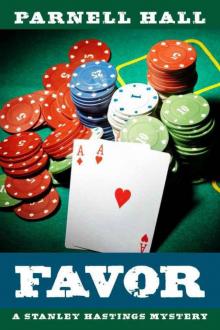 03-Favor
03-Favor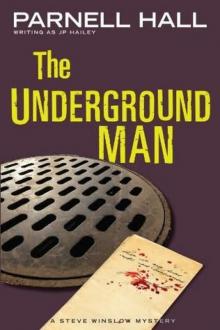 SW03 -The Underground Man
SW03 -The Underground Man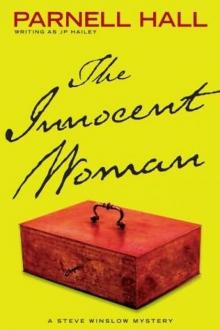 The Innocent Woman sw-6
The Innocent Woman sw-6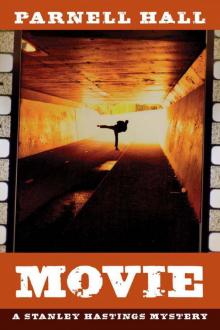 10 Movie
10 Movie 06-Juror
06-Juror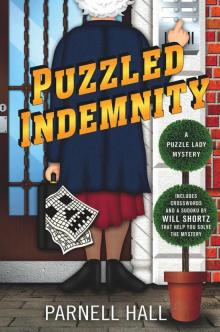 Puzzled Indemnity
Puzzled Indemnity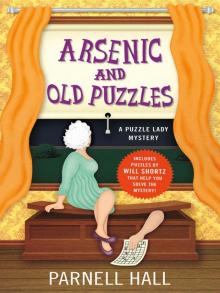 Arsenic and Old Puzzles
Arsenic and Old Puzzles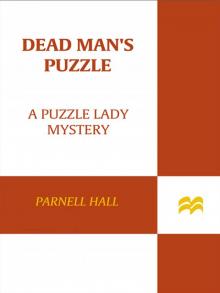 Dead Man's Puzzle
Dead Man's Puzzle Safari
Safari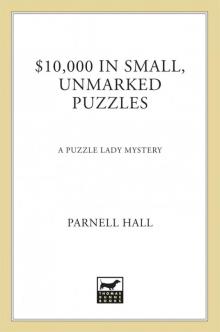 $10,000 in Small, Unmarked Puzzles
$10,000 in Small, Unmarked Puzzles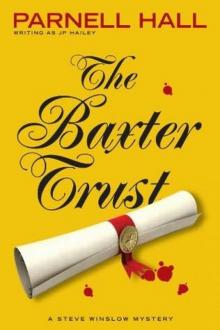 The Baxter Trust sw-1
The Baxter Trust sw-1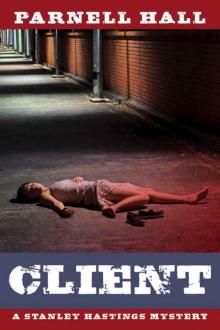 5 Client
5 Client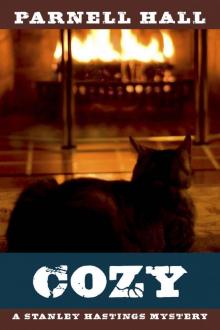 Cozy (Stanley Hastings Mystery, #14)
Cozy (Stanley Hastings Mystery, #14)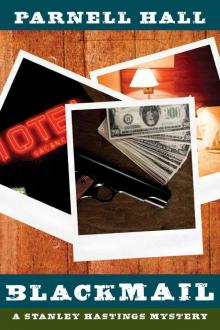 Blackmail
Blackmail A Puzzle in a Pear Tree
A Puzzle in a Pear Tree A Clue for the Puzzle Lady
A Clue for the Puzzle Lady Clicker Training (Stanley Hastings Mystery, A Short Story)
Clicker Training (Stanley Hastings Mystery, A Short Story)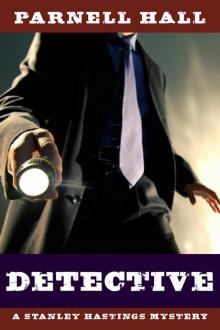 Detective (Stanley Hastings Mystery Book 1)
Detective (Stanley Hastings Mystery Book 1)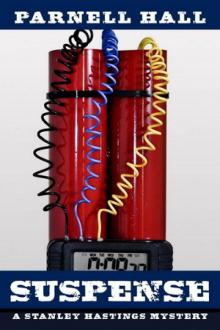 13 Suspense
13 Suspense